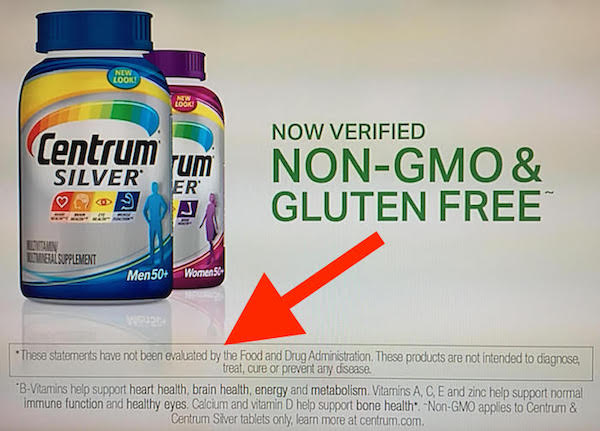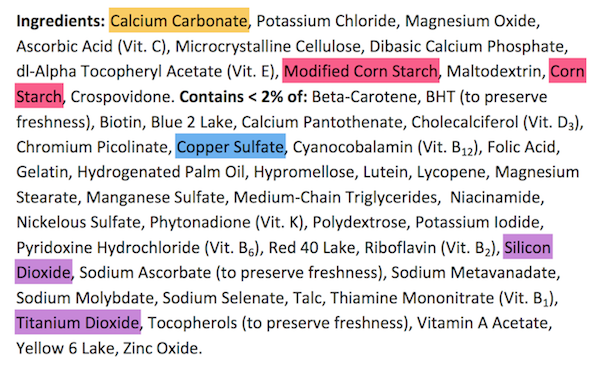Elderly people are constant targets. From fearmongering politicians who want votes to scam artists who want money, unscrupulous people try to scare our parents and grandparents into giving them money.
Perhaps there is no better way to shake people down for cash than by frightening them about their health. Peddlers of organic food and alternative medicine, both multibillion-dollar industries, have profited handsomely by undermining public confidence in the safety of our food supply and the efficacy of modern medicine.
The dietary supplement industry benefits from this, as well, to the tune of $5.7 billion. The dirty little secret about multivitamins is that few people actually need dietary supplements. In fact, most people can consume less than the Recommended Dietary Allowance (RDA) of most nutrients and be just fine. The foods a person normally eats, assuming a diet that doesn't consist solely of Twinkies and Ding Dongs, will provide him with the nutrients he needs to be healthy.
But that's not the only way the supplement industry has capitalized on public misconceptions about science and health. Consider this television ad by Centrum (which is owned by Pfizer):

GMO-free and gluten-free vitamin tablets? There is hardly anything in the pill that could be genetically modified. Vitamins and minerals are not the direct products of genes and therefore cannot be genetically modified. The pills do contain corn starch (see ingredient list below), which could have been supplied by GMO corn. Of course, there is absolutely no health concern posed by GMOs, so Pfizer's decision to eliminate the scourge of demon corn is simply a PR stunt.
Similar logic applies to its gluten-free claim. Gluten is found in grains like wheat, but tablets usually do not contain grains. Advertising a tablet as "gluten-free" makes about as much sense as labeling water "gluten-free."
In short, Pfizer is playing on popular ignorance in order to make money. That's the very definition of a scam. And, just in case you don't believe that, Pfizer basically admits to it in tiny print that nobody can read unless you pause the television and stand close to it:
These statements have not been evaluated by the Food and Drug Administration. These products are not intended to diagnose, treat, cure or prevent any disease.
Then what are people buying them for?!
While we're on the topic of ingredients, surely Pfizer wouldn't mind if we take a closer look at what's actually listed on its label. Here's the ingredient list for Centrum Silver Men, which is marketed to men over the age of 50:

If we were a scientifically illiterate chemophobe like the Food Babe, we would be having a field day with this. BHT and food coloring? Oh my! And check these out:
Calcium carbonate. Chalk.
Copper sulfate. Pesticide.
Silicon dioxide. Glass.
Titanium dioxide. Paint.
Of course, in tiny doses, none of those things will hurt you, and they are probably in the tablets to serve some sort of purpose. Copper sulfate, for example, probably serves as the 0.5 mg of copper the tablet provides. Remember, the dose makes the poison.
There are several takeaway lessons from this: (1) You don't need to take multivitamins; (2) "GMO-free" and "gluten-free" labels on tablets are a marketing gimmick; (3) Anything can be made to sound scary if you don't understand chemistry or toxicology; and (4) Dietary supplements are being sold to vulnerable people who misunderstand science and health.
Don't be fooled.



